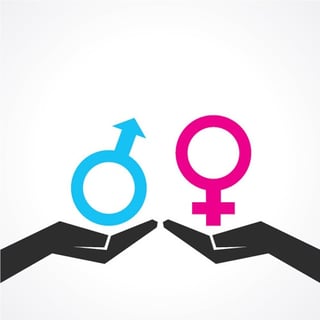 The proverb "Good Things Come in Small Packages" is proven true in Chimamanda Ngozi Adichie’s 50-page book, We Should All Be Feminists. The book is a follow-up to her 2012 TEDx talk of the same name.
The proverb "Good Things Come in Small Packages" is proven true in Chimamanda Ngozi Adichie’s 50-page book, We Should All Be Feminists. The book is a follow-up to her 2012 TEDx talk of the same name.
This 2014 book made global headlines when it was published and it continues to cause ripples in universal consciousness. The second stanza of Beyoncé's hit single Flawless is quoted from the book. The Swedish Women's Lobby gave the book to all Swedish 16-year-olds in December 2105 to increase the dialogue about equality. Since gender equality is one of the cornerstones of Swedish culture, many Swedes thought that Swedish students might find some of the material out-of-date, since they were raised in a culture that enshrines equality as the norm.
Always interested in fodder for interesting conversation, I read the book. I did so with a bit of trepidation, concerned I might find an antagonistic diatribe. I should have known that if the non-controversial Swedes gave this to second year secondary school students, the ideas would not be inflammatory.
Adichie defines a feminist as "a person who believes in the social, political, and economic equality of the sexes." She goes on to add, "Gender matters everywhere in the world. And I would like today to ask that we should begin to dream about and plan for a different world. A fairer world. A world of happier men and happier women who are truer to themselves. And this is how to start: we must raise our daughters differently. We must also raise our sons differently. "
Adichie, a Nigerian novelist, wrote a clear, concise and convincing call-to-arms. She does not demand or even suggest the need to war with half the population. She recognizes that for equality to be a reality, society as a whole must change. By approaching the topic in a forthright and somewhat light-hearted manner, Adichie shows the reader that feminism need not be divisive or confrontational. In fact, I have reconsidered many opinions based on the book and TEDx talk
There is nothing new in her message, but her practical, logical tone makes the reader step back and look at the issue of equality through a different lens. "We say to girls: You can have ambition, but not too much. You should aim to be successful but not too successful, otherwise you will threaten the man. Why do we teach girls to aspire to marriage and we don’t teach boys the same?” Having gone to university when a woman was expected to become a nurse, teacher or social worker, this comment struck a nerve. If you were smart, you were expected to hide it so the man could feel superior.
"Some men feel threatened by the idea of feminism," Adichie explains. "This comes, I think, from the insecurity triggered by how boys are brought up, how their sense of self-worth is diminished if they are not 'naturally' in charge as men." I liked the adroit way Adichie changes the discussion from an attack on men to the thought that this is a societal issue. Fathers and mothers raise boys in ways that prevent them from achieving their full potential. Until that changes, little else can.
"We do a great disservice to boys in how we raise them," Adichie writes. "We stifle the humanity of boys. We define masculinity in a very narrow way. Masculinity is a hard, small cage, and we put boys inside this cage." I immediately thought of the recent Olympic games. A commentator made a snide comment about both the winner and loser of a men's tennis match crying, as if this made them less masculine. The winner cried tears of joy and the loser's tears showed how much playing for his country meant – he was sad at losing, since it was a group rather than an individual loss. Yet, the American announcer, raised in the cage of "big boys don't cry" called attention to what he saw as odd behavior, not realizing that instead of disparaging the two men, he told those watching of his own prejudices.
Adichie does not write about waging battle. She does not pit one sex against the other. What she does is create a blueprint for a better way to approach gender equality, using humor and well-crafted prose.
I did find one place where I challenge the author. She writes, "I’m a feminist because I want to live in a world where a woman is never told that she can or cannot or should or should not do anything because she is a woman." I would amend this to read, "no one is ever told that he or she cannot or should not do something because of their gender."
Surely, if we want to socialize both sexes differently, we want a world where boys and girls are given the same messages.
Adichie ends her book with the words, "All of us, women and men, must do better."
Want to learn more about how you create a gender-inclusive workplace? Request a demo here.

